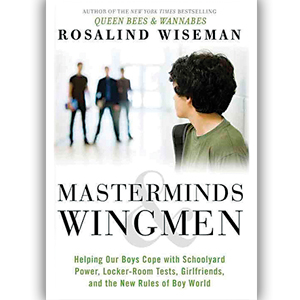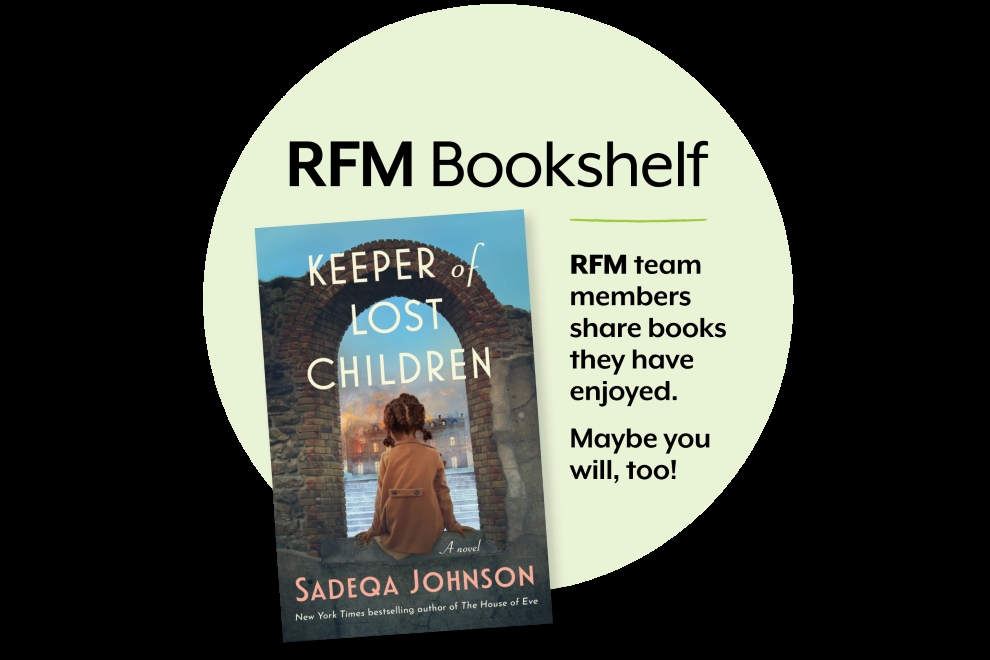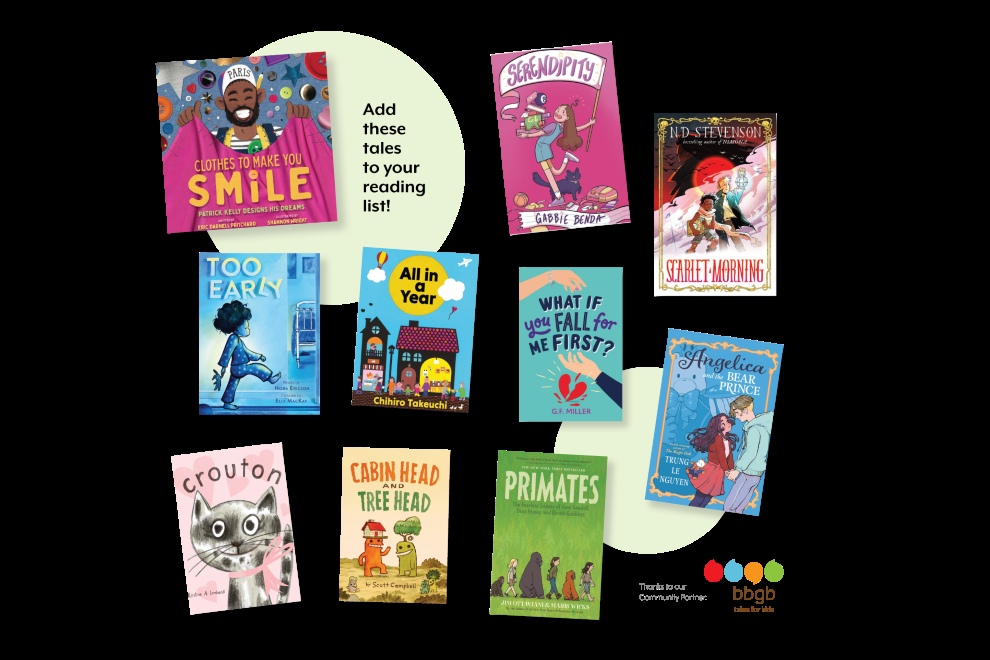 Admittedly, as a mother of two daughters, I don’t read a lot of books about boys. However, two of my favorite titles, Real Boys by William Pollack, and The Courage to Raise Good Men by Olga Silverstein have been my go-to shower gifts for parents expecting sons. These books helped me not only understand my husband better but also made me more sensitive to the issues men face. Therefore, when my publisher, Margaret Thompson, asked me to read Masterminds and Wingmen by Rosalind Wiseman, I was more than happy to do so.
Admittedly, as a mother of two daughters, I don’t read a lot of books about boys. However, two of my favorite titles, Real Boys by William Pollack, and The Courage to Raise Good Men by Olga Silverstein have been my go-to shower gifts for parents expecting sons. These books helped me not only understand my husband better but also made me more sensitive to the issues men face. Therefore, when my publisher, Margaret Thompson, asked me to read Masterminds and Wingmen by Rosalind Wiseman, I was more than happy to do so.
Wiseman begins with the typical comparison between raising boys and girls. I heard it myself, countless times, when my daughters were young. Girls are easier to parent when they’re toddlers; boys are easier to parent when they’re teens. However, the reality is parenting children of any age is a nuanced art, regardless of the child’s gender. Wiseman writes, “After twenty years of teaching and working with teens, I realized that we often make the mistake of believing that if a boy doesn’t come to us with problems, then he doesn’t have them.”
In order to save boys from spending their lives misunderstood, Wiseman argues we need to do a better job of addressing boys’ needs. “Because even if you don’t have boys,” Wiseman contends, “You don’t want girls having to put up with insecure, intellectually stunted, emotionally disengaged, immature guys. Then we’re dealing with guys who believe that the right to amuse themselves by degrading girls is more important than behaving with common decency.”
I found Wiseman’s take on why Batman never smiles fascinating for two reasons. The first was her explanation of how if male characters, depicted as heroes, fail to show human emotions, then boys grow to believe they must limit their own emotions. Her other observation that struck me related to “Six-Packing,” which she defines as the unhealthy masculine images our society bombards our boys with. As if Barbie’s controversial, voluptuous figure wasn’t enough, action figures, such as G.I. Joe, have bulked up tremendously over the years to satisfy our image conscious society.
However, Wiseman is quick to point out that these media images aren’t the only ones to blame for boys being misunderstood. She claims, and I concur, that adults reinforce and nurture these limitations when they say things like “Get yourself under control” or coaches accuse kids of acting like “little girls” if they get upset. Wiseman is clear on the fact that “When our boys see that we aren’t saying anything in their defense, they believe that either we agree or we’re powerless to stand up to this kind of treatment. Either way,” Wiseman continues, “If a boy is growing up in this atmosphere, why would he ever ask us for help?”
Wiseman explains that boys are groomed to fit into the “Act-Like-a-Man” box, a paradigm originally dubbed by Paul Kivel. While every boy reacts differently to these prescribed ideals, they all must contend with them when trying to belong to a community. According to Wiseman, there are eight different roles men play – Mastermind, Associate, Bouncer, Entertainer, Conscience, Punching Bag, Fly, and Champion. She defines then and offers suggestions for how you can break through the Boy World wall in this fascinating book. You’ll appreciate Wiseman’s advice, as the first few chapters of Masterminds and Wingmen addresses everything from no longer embarrassing him to oversharing about his life to no longer interrogating him as soon as he gets in the car.
As far as Wiseman is concerned, “The stakes are so high. Our boys deserve meaningful relationships, the freedom to pursue what interests and challenges them, a feeling of belonging and social connection to others, and a sense that they’re contributing to something larger than themselves.” If you’re ready to challenge the assumptions we make about boys, then check out this great book by Rosalind Wiseman. Masterminds & Wingmen is the first step in a happily-ever-after for us all.
Follow @WinterhalterV on Twitter for updates on blog posts or like Parenting by the Book on Facebook.
Read my other blog Befriending Forty.



